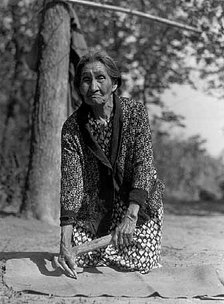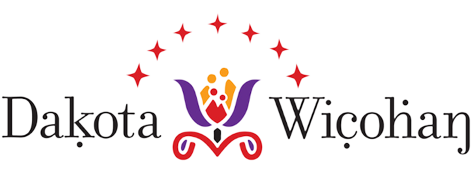
Documentary Film
Documentary Roots: Our Elders
Between 2008 and 2012, Dakota Wicohan interviewed dozens of elders about their life experiences, Dakota language use, and traditions. The video-recorded interviews were part of a Minnesota Historical Society-supported oral history project intended to preserve the words and wisdom of Dakota community elders. In addition to elders, interviewees included Dakota Wicohan staff and Dakota language speakers. In total, Dakota Wicohan gathered 24 hours’ of oral history interviews with our elders. In 2011, we began editing the interviews to create the documentary, Dakota Iapi Teunhindapi: We Cherish the Dakota Language. The documentary was completed in 2013 and has been screened in over 15 sites around the state, reaching more than 600 viewers.
Background on Dakota Iapi
Mnisota, cloudy waters is the birthplace of the Dakota language. Unfortunately through years of Government assimilation policies (boarding schools, etc), only 5 fluent first generation speakers, all elderly, remain within the four Minnesota Dakota communities.
Today, only 165 American Indian languages are spoken and it’s estimated that 90% of all world languages will be lost in this century. We are committed to ensuring Dakota does not suffer the same fate as these lost languages. Our current preservation initiatives include:
- Interviewing and recording remaining Dakota speakers for multiple Oral History Project documentaries
- Digitally recording written Dakota materials for inclusion on the Minnesota Reflections collection
Bring the Documentary to Your School or Community!
Are you interested in expanding your students’ understanding of Dakota culture, history, and language? Would you like to get your community group enthusiastic about Dakota language and teachings? Dakota Wicohan can help you! We offer a wide variety of workshops for educators, schools, and community groups. Our workshops feature Dakota Iapi Teunhindapi: We Cherish the Dakota Language, the hour-long documentary on the history of the Dakota language revitalization movement in Minnesota produced by Dakota Wicohan in 2013. This original film, based on interviews with Dakota elders, provides a powerful introduction to Dakota culture, history, and language and has proven effective for learners in diverse community settings.
Click here to go to our Resources page for more information.
Critical Themes in the Documentary
The documentary covers a wide breadth of topics that will educate, mediate, and excite a diverse audience. These themes include:
- Memories from youth
- Boarding school
- The US-Dakota War of 1862
- Dakota language education
- Reclaiming Dakota tradition and language
- The fortitude of community members in the 20th century

Wopida!
Dakota Wicohan offers its deep thanks and gratitude
to the elders who have encouraged us to remember and reclaim our language and lifeways.
We would like to especially thak those who shared their life stories for our 2013 documentary, Dakota Iapi Teunhindapi: We Cherish the Dakota Language.
- Dean Blue, Upper Sioux
- Larry Blue, Upper Sioux
- Curtis Campbell, Prairie Island
- Gary Cavender, Lower Sioux
- Trulo Columbus, Lower Sioux
- Lydia Conito, Lower Sioux
- Chris Leith, Upper Sioux
- Ruby Leith, Lower Sioux
- Yvonne Leith, Upper Sioux
- Irene Howell, Upper Sioux
- Genevieve LaBatte, Upper Sioux
- Super LaBatte, Upper Sioux
- Carolynn Schommer, Upper Sioux
- Henry St. Clair, Lower Sioux
- Debbie & John Robertson, Lower Sioux
- Garrett Wilson, Sisseton-Wahpeton
- Lillian Wilson, Lower Sioux
Other Acknowledgements
We are thankful to the many donors and volunteers who provide financial, creative, and product gifts. Without this wide range of support Dakota Wicohan would not be complete.


